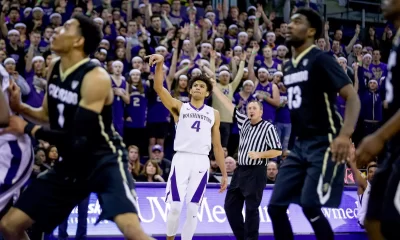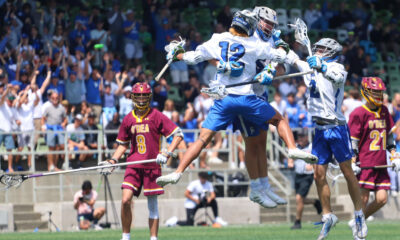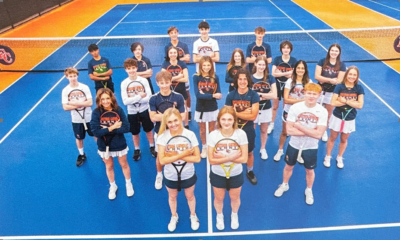
With the Metro League Boys Soccer season now well behind us, now might be a good time to look back on the postseason structure and evaluate its detractions and merits. While no postseason bracket is perfect, maybe there are improvements to be made within our own playoff tournament.
Postseason Structure
Metro’s postseason tournament has teams from the lower-ranked “Sound” Division play one another before the teams from the “Mountain” Division enter the brackets. The Mountain teams basically get a “bye” for the first round, while half of the teams from the “Sound” Division are eliminated in Round 1.
In the second round of the tournament, teams from the Mountain Division play teams from the Sound Division. At this point, the tournament switches to a double elimination system, with losing teams moving into a separate bracket. Those teams in the “loser’s bracket” get a second shot to get to state.
Predictably, at the end of the tournament, the top two teams from the winner’s bracket go to state. But Metro League’s postseason tournament gives teams that have lost in Rounds 2 and 3 extra chances to advance to state.
These lifelines have raised some concerns about fairness and equal opportunities for teams in the Sound Division, as well as questions about whether this system sends the best teams to state.
A team can lose twice and still go to state? Is this system fair for all teams or does it leave too much to luck and extra chances?
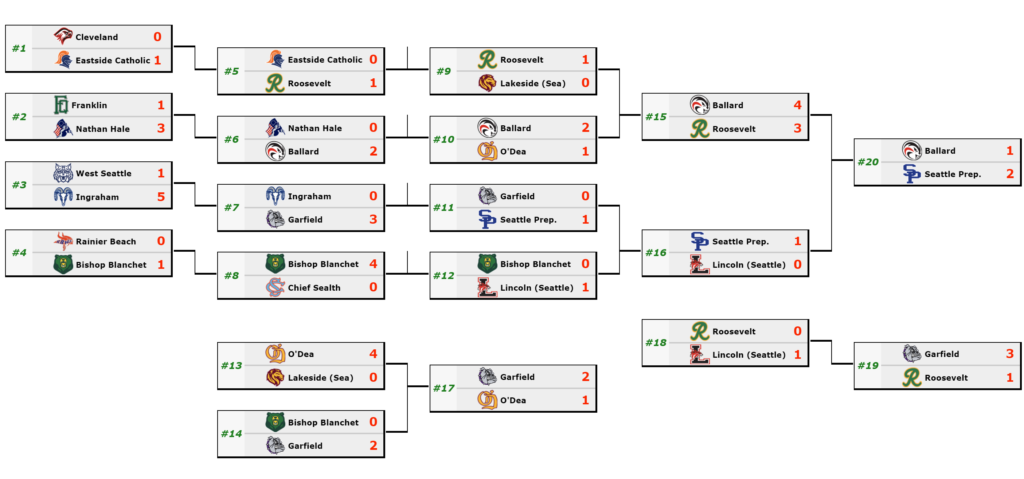

Brent Brakke is the Metro League postseason tournament director for boys soccer and also the Athletic Director at Lincoln High School. When Brakke was asked about the use of a losers bracket, he told me, “Realistically, you have teams that have a tough matchup, and especially in soccer. It’s such a game of a bad bounce here or a lucky one here. That can really impact the overall outcome of that game. So many times these games end in overtime and a shootout. Because of that, I think it’s important that teams have that opportunity to play another game if they do lose.”
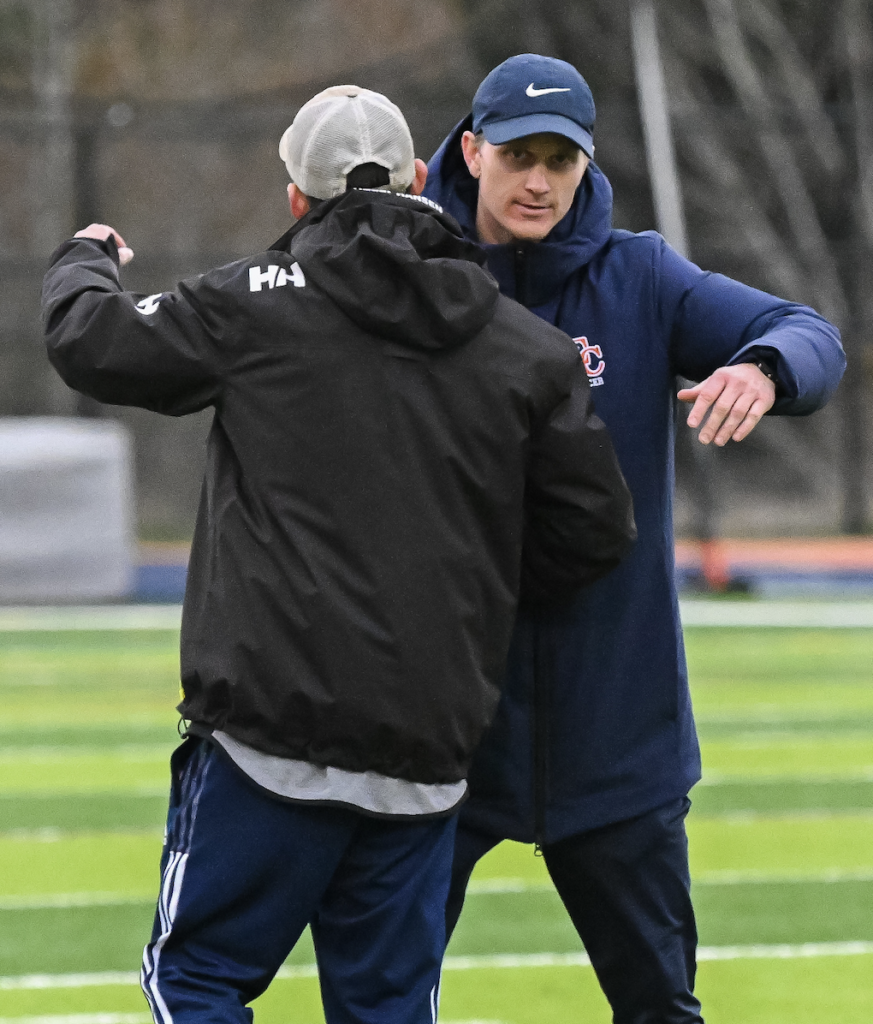
The current tournament system, however, only gives that extra opportunity to teams that have made it out of the first round and not everyone is a fan.
Philip Lund, an ex-professional soccer player who played for the Seattle Sounders and the Tacoma Stars, now coaches Eastside Catholic boys soccer. Coach Lund grew up in Vejle, a small city in Denmark.
Lund says this about the loser’s bracket: “I do not understand the American style tournament with a loser’s bracket, where the winner aren’t the only ones who are the winners.” As for Round 1, Lund was blunt, “I don’t think there should be byes. Why not just have everyone equally play everyone? I think us being the second seed got us into a worse position than other teams.”
As for his team’s performance in the postseason, Lund acknowledged that that the regular season’s tight playing schedule was challenging. He said, “We cannot just look at the tournament. We were playing three games a week in the normal season, which made it hard for us to recover and also led to some injuries, which could have made our last game look much different.”
The postseason tournament will look a little different next year says Brakke, but he is unsure as to how just yet.
“I haven’t had a chance to talk with the coaches yet [about potential improvements]. I’ll start there. I’ll get some of their feedback and input, and then I’ll take it to our athletic directors in the Metro League and discuss with them.”
A Look Ahead: Changes to Metro League?
Changes to the postseason and the regular season are coming next year. Every four years the Washington Interscholastic Athletic Association (WIAA) goes through a process of figuring out what teams fit in which classification level. Earlier this year, the organization evaluated current enrollment numbers for each school and tried to rebalance the levels.
In Washington, the 2020-2024 term had 51 4A teams, 79 3A teams, and 63 2A teams. The WIAA wants to change the system to make it more even, so going into the 2024-2028 term, several of the current 3A teams will be moved to the 4A level. As of now, there will be 60 4A teams, 73 3A teams, and 63 2A teams. As the numbers from 2020-2024 and 2024-2028 don’t totally line up, there are still some conversations to be had about reclassification and realignment.
So what exactly does that mean for the Metro League?
The 2020-24 Metro League teams (based on the WIAA 3A classifications) were Ballard, Bishop Blanchet, Chief Sealth, Cleveland, Eastside Catholic, Franklin, Garfield, Holy Names Academy, Ingraham, Lakeside, Lincoln, Nathan Hale, O’Dea, Rainier Beach, Roosevelt, Seattle Prep, and West Seattle.
Importantly, three of these schools — Nathan Hale, Cleveland, and Chief Sealth — have been reclassified by the WIAA for the 2024-28 term as 2A schools and will no longer play in the Metro League. One former Metro League team, the Lincoln High School, will be moving up to 4A.
Ballard High School has a student enrollment right on the cusp between the 3A and 4A classification with an adjusted average student population of 1,203.63, which is just over the 1,200-student limit to be designated a 3A school, technically making it a 4A school. Ballard has appealed their classification and will remain in the 3A bracket for two years. According to the WIAA, an appeal of the classification status “stands for two years, which is the next time schools will have the option to appeal their classification.”

With three teams leaving the Metro, one new addition to the Metro League next school year will be the Upper School teams from the Seattle Academy of Arts and Sciences (SAAS or the “Seattle Academy”). The school’s enrollment numbers would normally place it in the 2A classification, but schools may apply to “opt up” into Metro 3A league. Rob Phillips, Head of School for Seattle Academy, stated in an April letter to the Seattle Academy community that, “for those student-athletes who are striving to continue their athletic pursuits after high school, participating in the Metro League will provide them with opportunities for improvement and visibility.” Phillips also noted that the move will mean less travel time for Seattle Academy teams, improved junior varsity level offerings, and increased competition overall.
The move was not without controversy. Seattle Academy’s application was rejected by the Metro League last year. The Seattle Academy Head of School, Phillips, wrote in February that “multiple reservations were communicated to us, and included: adding an additional school to the league; Seattle Public Schools that are currently struggling with resources, and thus the capacity to support an additional member; facilities constraints within the League; and ongoing tension between the public and private schools already in Metro.”
Seattle Academy appealed Metro’s decision to the District 2 Board of WIAA , which found in favor of the school. Metro League appealed that ruling to the WIAA District Directors, which also found in favor of the school. Finally, Metro appealed to the state WIAA Executive Board of Directors, which decided in March that the Metro League must admit Seattle Academy. Phillips argued, “we continue to believe that Metro is the right league for SAAS as a school in the heart of Seattle, and that we can work with Metro leadership to address their concerns and to productively partner with Metro schools.”
The Seattle Academy Cardinals came in third in the regular season this spring, in the Emerald Sound 1A Conference. The boys placed second in their postseason tournament, went to state and lost 0-1 in Round 2 to the Overlake Owls. The Owls went on to win first in state for 1A boys soccer.
It’s commendable to keep making changes as needed, rather than letting old systems go stale. Change can bring both controversy and improvement, and it remains to be seen whether all these off-season moves will pan out for the Metro League.

Latest Posts
- Volleyball: Panthers sweep aside Crusaders as hot start to season continues
- Football Recap: Vikings Overwhelm the Bulldogs in a Landslide Victory
- Girls Soccer: Prep, EC scoreless in Sammamish
- Football: Panthers Triumph over Bears in a Thrilling Showdown
- Football: O’Dea blanks Eastside Catholic in a Metro League rivalry game
